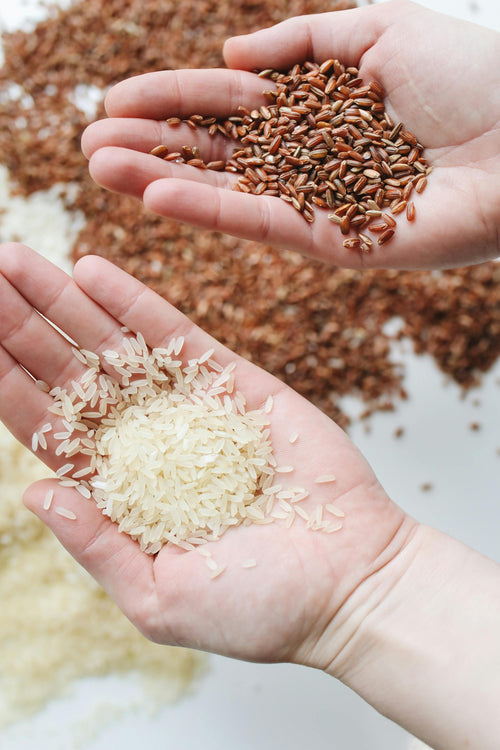Conversely, the constitution of the microbiota also influences the hormonal system. By treating intestinal dysbiosis, we could therefore prevent and treat certain hormonal pathologies. There is indeed a link between our microbiome and our hormones, and even if we still have a lot to discover, let's take an overview of the little research carried out on the subject.
The world of research increasingly agrees that the intestinal flora has an impact on the psychological state, thanks to, or because of, hormonal fluctuations moderated by the state of the microbiota. Indeed, probiotics from the intestinal flora regulate serotonin levels, a neurotransmitter of mood, and therefore have an action on the central nervous system, this is the case for example with Bifidobacterium infantis . This was highlighted by an Irish study, in which mice devoid of any microbial environment showed clinical signs of anxiety. The serotonin levels assessed in these mice were very low and this had an impact on their behavior. To validate their hypotheses, the researchers subsequently reconstituted a microbiota in these mammals by injecting them with probiotic bacteria. Although serotonin levels appeared to remain irreversibly low, anxiety significantly decreased in the mice, as did mood disorders. This study is part of a group of several other studies that suggest that there is a microbiome-gut-brain axis, and that probiotic supplementation can improve the psyche through hormones. Other strains, such as Lactobacillus rhamnosus , act directly on the production of dopamine: they are recognized as increasing attention.
Probiotics therefore represent promising solutions for adults, as well as children, who suffer from psychological disorders.
But the intestinal microbiota not only has an effect on the hormones that determine the psychological state, the microorganisms in the intestines also influence physical health. And this, from childhood. Indeed, the good constitution of the microbiota is necessary for optimal growth according to certain studies. One of the main reasons concerns a growth factor, the production and actions of which are modulated by bacteria in the digestive tract. Certain strains can therefore improve postnatal growth. These results are promising for the search for new therapeutic avenues linked to childhood undernutrition.
Finally, where probiotics have a recognized preventive action on fluctuations in the endocrine system, they also have an action on already established hormonal pathologies. Today, thyroid diseases affect 15% of the French population. This is a significant figure for pathologies that we hear little about, which can nevertheless cause very disturbing, even disabling symptoms. In the case of hypothyroidism, scientific literature has highlighted an imbalance in the intestinal microbiota in affected people. These would harbor fewer lactobacilli, even though this family of bacteria has a very important role in the absorption of micronutrients essential to thyroid health, such as iodine, selenium, iron, and zinc. These modulate the production of thyroid hormones, so they are very important in normal times, but are even more so in cases of hypothyroidism. It is a vicious circle that is harmful for affected people: this thyroid disease degrades their microbiota, and this degraded microbiota hinders the proper functioning of the already weakened thyroid.
To cite another example, in the case of menopause, many strains are recognized as improving the quality of life of those subject to it. This is the case for Lactobacillus rhamnosus, Lactobacillus reuteri, or even Lactobacillus acidophilus .
It therefore seems wise to be interested in probiotics with regard to the treatment of endocrine pathologies, but also for prevention. At DIJO, we created the Intimate Flora pack which includes the Essential probiotics , containing 8 strains and 28 billion CFU, and Vaginal Flora probiotics , with 3 strains and 10 billion CFU, to stock up on good bacteria and strengthen the different systems and mechanisms of your body. In prevention or treatment, probiotics always have a beneficial action and target a multitude of inconveniences and symptoms.
Sources :
[1] Clarke, G., Grenham, S., Scully, P. et al. The microbiome-gut-brain axis during early life regulates the hippocampal serotonergic system in a sex-dependent manner. Mol Psychiatry 18, 666–673 (2013). https://doi.org/10.1038/mp.2012.77
[2] Martin Schwarzer, Kassem Makki, Gilles Storelli, Irma Machuca-Gayet, Dagmar Srutkova, Petra Hermanova, Maria Elena Martino, Severine Balmand, Tomas Hudcovic, Abdelaziz Heddi, Jennifer Rieusset, Hana Kozakova, Hubert Vidal, François Leulier. Lactobacillus plantarum strain maintains growth of infant mice during chronic undernutrition. Science , February 19, 2016.
[3] Knezevic J, Starchl C, Tmava Berisha A, Amrein K. Thyroid-Gut-Axis: How Does the Microbiota Influence Thyroid Function? Nutrients . 2020. 12(6):1769. doi:10.3390/nu12061769.
[4] Sharma R, Gupta D, Mehrotra R, Mago P. Psychobiotics: The Next-Generation Probiotics for the Brain. Curr Microbiol. 2021. 78(2):449-463. doi:10.1007/s00284-020-02289-5.






















